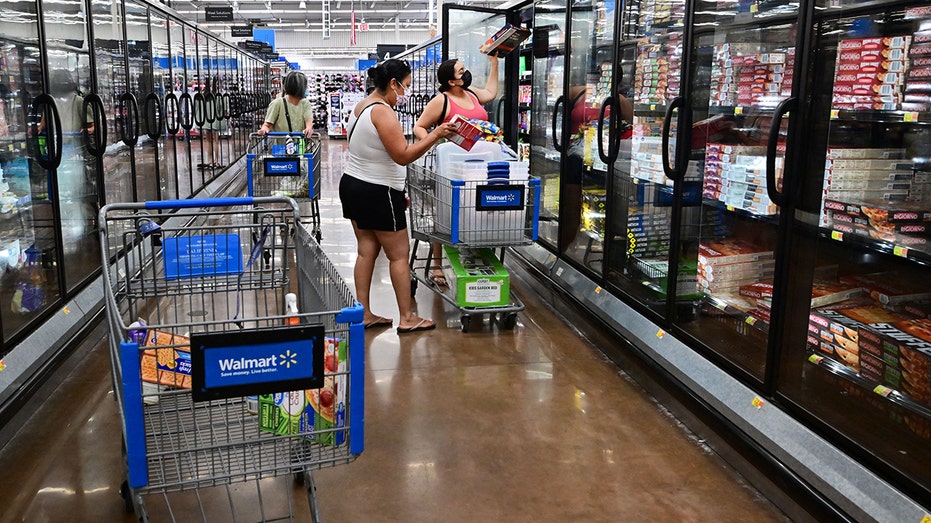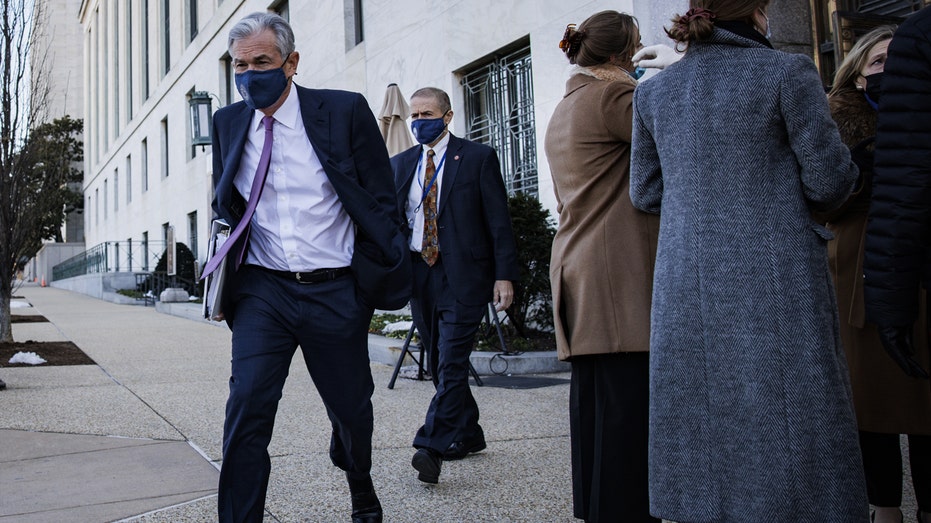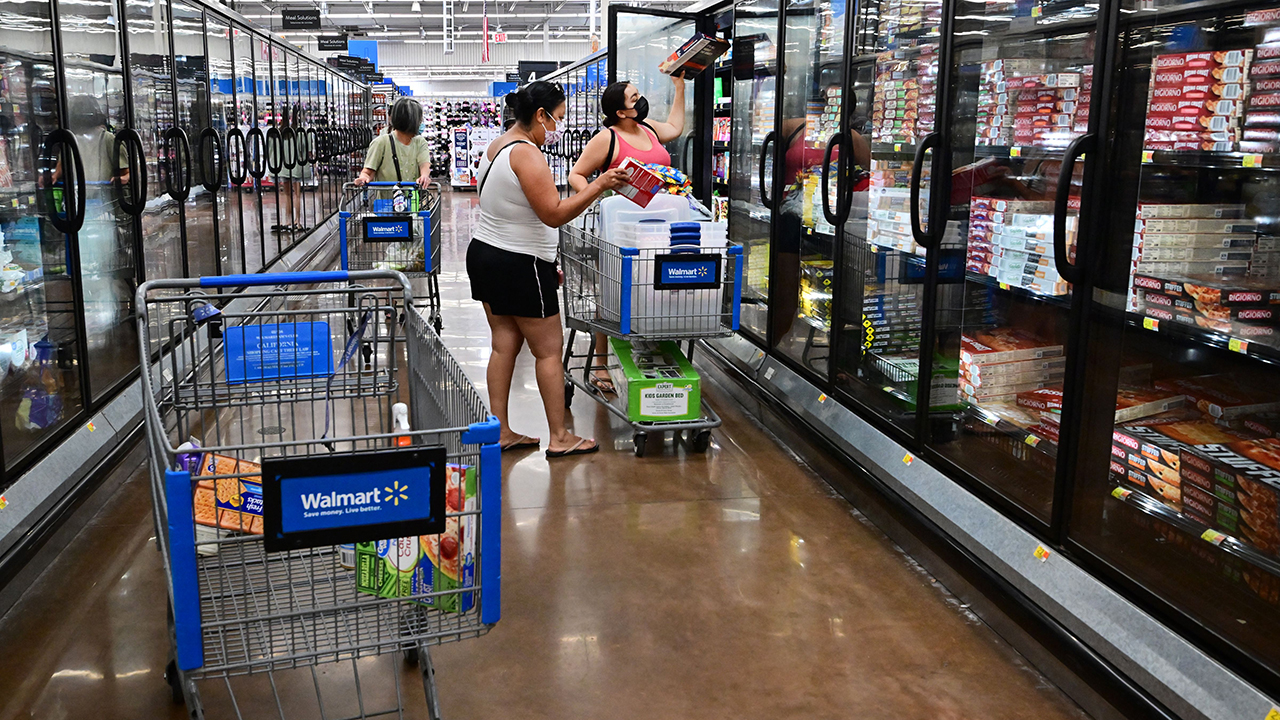Inflation climbed 8.5% in July as prices cool but remain near record high
Price gains eased in July for the first time in months
Investors underestimating Fed's resolve to fight inflation: Strategist
U.S. Bank Wealth Management global investment strategist Tom Hainlin analyzes the utilities sector and reveals what he's avoiding on 'The Claman Countdown.'
The torrid pace of inflation slowed in July for the first time in months, but prices remained near the highest level in 40 years.
The Labor Department said Wednesday that the consumer price index, a broad measure of the price for everyday goods including gasoline, groceries and rents, rose 8.5% in July from a year ago, below the 9.1% year-over-year surge recorded in June. Prices were unchanged in the one-month period from June.
Those figures were both lower than the 8.7% headline figure and 0.2% monthly gain forecast by Refinitiv economists, likely a welcoming sign for the Federal Reserve as it seeks to cool price gains and tame consumer demand. Stock futures rose on the better-than-expected report, with the Dow Jones Industrial Average climbing 0.9% and S&P 500 futures gaining 1.2%.
So-called core prices, which strip out the more volatile measurements of food and energy, climbed 5.9% from the previous year, below the 6.1% forecast from economists but matching the reading from July. Core prices also rose less than expected, rising 0.3% on a monthly basis – a smaller increase than in April, May and June, an encouraging sign that inflation is starting to loosen its stranglehold on the economy.
INFLATION REDUCTION ACT: WHAT TAX HIKES ARE IN THE BILL?
Still, experts cautioned that while the July slowdown is a step in the right direction, inflation remains painfully high and could be slow to return to the Fed's preferred target of 2%.
"We're not out of the woods by a long shot," said Peter Earle, a research fellow at the non-profit think tank the American Institute for Economic Research. "There's a long way to go, and a lot can happen, before we get back down to that 1.5% to 2.5% annual inflation area that Americans are used to."
Scorching-hot inflation has created severe financial pressures for most U.S. households, which are forced to pay more everyday necessities like food and rent. The burden is disproportionately borne by low-income Americans, whose already-stretched paychecks are heavily impacted by price fluctuations.

People shop for frozen food at a store in Rosemead, California on June 28, 2022. ((Photo by Frederic J. Browne/AFP via Getty Images) / Getty Images)
Although American workers have seen strong wage gains in recent months, inflation has largely eroded those. Real average hourly earnings decreased 0.5% in July from the previous month when accounting for higher consumer prices, according to the Labor Department. On an annual basis, real earnings actually dropped 3% in July.
"While the boost to overall economic prospects is welcome, easing inflation will ring hollow with many down-market consumers whose wages are falling in real terms despite the decline in gasoline prices alone adding about $400 million dollars back to household balance sheets," said RSM chief economist Joe Brusuelas.
IS THE UNITED STATES ENTERING A RECESSION?
There was some real reprieve for U.S. households last month in the form of lower energy prices, which contributed to the decline in headline inflation. The cost of energy fell 4.6% in July from the previous month, though it remains 32.9% higher than just one year ago, while gasoline prices fell 7.7% in July. They remain up 44.9% from last year.
However, other price increases were extensive in July with inflation remaining stubbornly high. The food index climbed 1.1%, putting the 12-month increase at 10.9%, the highest since May 1979. Consumers paid more for items like cereal, chicken, milk and fresh vegetables.

Jerome Powell, chairman of the U.S. Federal Reserve, leaves after testifying before a Senate Banking, Housing, and Urban Affairs Committee confirmation hearing in Washington, D.C., Tuesday, Jan. 11, 2022. (Photographer: Samuel Corum/Bloomberg via Getty Images / Getty Images)
Shelter costs, which account for about 40% of the core inflation increase, have climbed 5.7%, the fastest since February 1991.
Rent costs jumped 0.7% over the month and 6.3% on an annual basis. Rising rents are a concerning development because higher housing costs most directly and acutely affect household budgets. Another data point that measures how much homeowners would pay in equivalent rent if they had not bought their home, climbed 0.6% in July from the previous month.
CLICK HERE TO READ MORE ON FOX BUSINESS
"While it is fair to state that we may have observed the apex in overall inflation in June 2022, the risk to the economic outlook remains inflation, and the direction of [Fed] policy needs to remain in place," Brusuelas said. "In our estimation, it will be two to three years before inflation is anywhere near the Fed’s 2% inflation target."





















